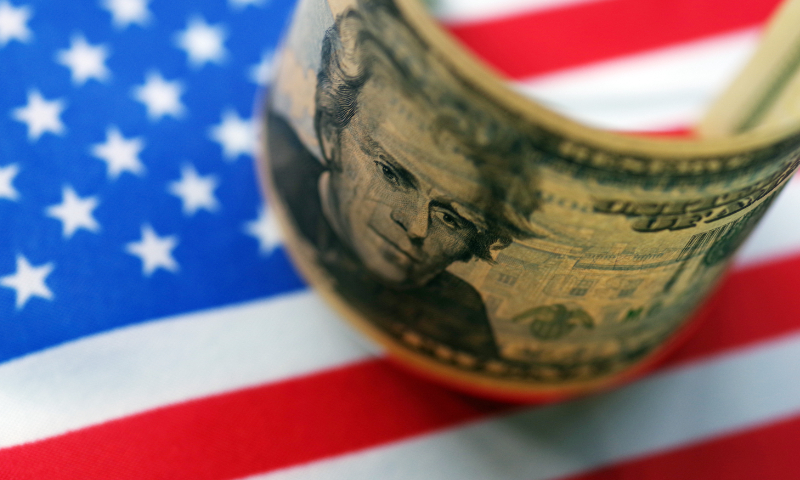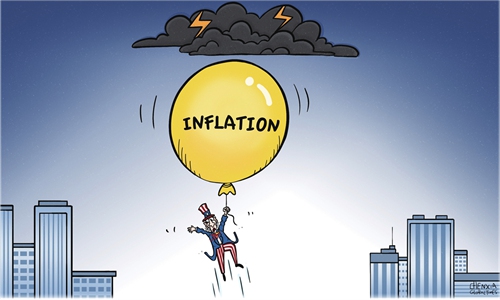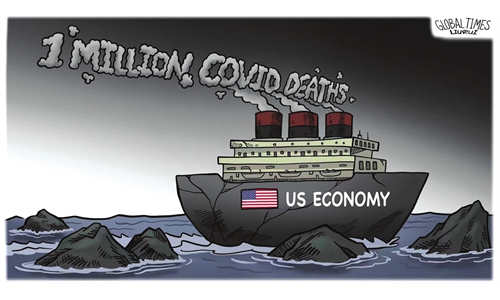
Photo: VCG
US President Joe Biden on Friday dismissed economic warnings from Tesla's CEO, Elon Musk, as he touted May's better-than-expected jobs report, saying the nation is entering a new phase of "stable, steady growth," CNN reported.
It is not surprising that the US president defended his administration's economic achievements in a bid to stop his approval rating from cratering, but excessive optimism on the economy can be hazardous.
Official data have failed to support the view that the economy is strengthening. The US economy shrank at an annual rate of 1.5 percent in the first quarter of 2022, the worst annual performance since the pandemic-induced recession in 2020. With less than six months to go until the midterm elections, Biden faces an uphill battle to restore trust in the US economy. However, an empty slogan simply cannot help to build confidence over "stable, steady growth."
The first step in solving any problem is recognizing there is an issue that needs to be solved. That is why Biden's arrogant tone against Musk is a cause for concern. Musk said he has a "super bad feeling" about the economy in an email to executives seen by Reuters. The email, titled "pause all hiring worldwide," was sent several days after Jamie Dimon, CEO of JPMorgan Chase, warned of a coming "economic hurricane" that requires preparation. It seems that Musk is not the only one issuing warnings about the risks of recession.
Citing a new Gallup poll, CBS News reported on June 1 that Americans are the most pessimistic about the US economy since the start of the COVID-19 pandemic. If the GDP growth continues its downward spiral and pushes the economy into a recession, many of the long-term issues, such as high inflation, a particularly fragile supply chain, wage stagnation, and trade deficit will become more difficult to solve.
In the US, rapid consumer price inflation has eroded wage growth and driven up the costs of daily necessities. Inflation in April rose 8.3 percent from a year before, hovering near a 40-year high. The US is being haunted by the ghost of stagflation, a combination of economic stagnation and high inflation, like the one it experienced in the 1970s.
Few scenarios alarm economists and investors as much as stagflation. Former US Federal Reserve Chairman, Ben Bernanke, was quoted in May by Bloomberg saying that the central bank's current leaders were too slow to react to surging US inflation and, as a result, faces a period of stagflation. Forbes put it more directly by saying that over 60 percent of investors predict the US economy will take a hit from stagflation.
Compared with economists like Bernanke, it seems Musk has adopted a relatively mild tone for his criticism against the US economy with just a "bad feeling." The Biden administration should not ignore well-intentioned criticism, especially at a time when economic headwinds in the US have aroused concerns over whether the country is headed for another recession.
Economists often describe a recession as a decline in GDP for two consecutive quarters. After the economy shrank at an annual rate of 1.5 percent in the first quarter, the most important job for the Biden administration's economic team should be to help the US out of this economic downturn. However, turning a blind eye to constructive criticism seems to run contrary to this goal.
The author is a reporter with the Global Times. bizopinion@globaltimes.com.cn



